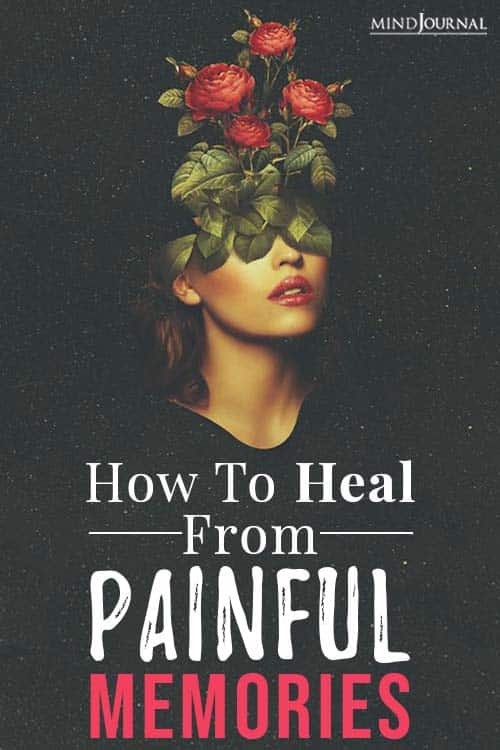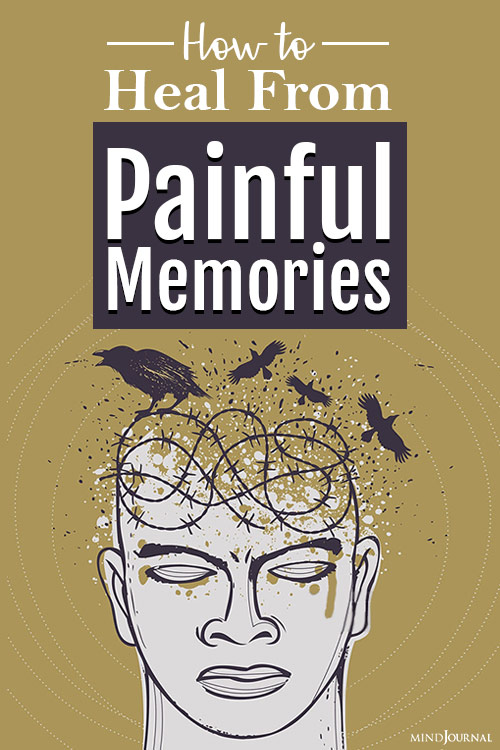Painful memories are so bad that we often feel like erasing them permanently, isn’t it? Research on memory offers a way to start to let go of the past and heal from painful memories. Read on to know how to heal painful memories.
We know from a good deal of research on memory how unreliable it is, partly because retrieving a memory is an active process that changes the memory as we call it up. When accuracy is important, then, we have to be careful not to embellish or distort the memory as we recall it, talk about it, or testify about it.
The memory is going to change anyway, but let’s not make it worse. But what about if the memory is a bad one and we want to heal from painful memories?
Fear, for example, is hard to forget, and dredging it up may change it in ways that make it more intense.
I had a difficult role as a young actor, singing the lead in a musical where most of the music was pitched a little too high for my voice. Every night I would work myself up into a mental cramp of terror before the curtain went up, anticipating the squeaks that were going to emanate from my mouth when I tried to launch into song.
That experience led to a case of stage fright that I wrestled with for many years in a variety of settings, but especially when music was involved.
Related: How to Find Freedom from Your Past with Mindfulness
So when new research came along recently that suggested a way to lessen this fear-based memory and stage fright, I paid close attention.

Editing Memories
It turns out that if you remember your memories from a third-person perspective as if you were narrating a story about someone else, then they get weaker, less vivid, and less emotional.
Think of it as a kind of editing of our memories. In theory, this practice should allow us to master the memories and grow beyond them.
Perhaps I could at last shed that stage fright and have a lot more fun when I’m performing in public!
More generally, we should all get to work on our memory banks enhancing the positive ones and lessening the negative ones. Put the good ones into first-person narratives and the bad ones into the third person, and you should be well on the way to having a happier brain.
Related: Emotional Muscle Memory: How To Release Painful Emotions Trapped In Your Body
Many clients I’ve worked with over the years who suffer from stage fright report an initial incident that caused the fear to crystallize or get worse. Often it’s a moment in the middle school years when they had to give a speech to the class and something went wrong. The students laughed, or the teacher spoke harshly, and the rest is a traumatic memory.
Now, perhaps, they have a way to ease that fear. Tell the story as you recall it, but in the third person, as if it happened to someone else, and watch the memories fade, the trauma heal, and the stage fright dissipate.

At least, that’s the theory. If you have a similar memory that haunts you, then please try this out and let me know what the result is.
Wouldn’t it be amazing to be able to shake off those bad memories for good?
Want to know more about healing painful memories? Check this video out below!
Check out Nick’s latest book, Can You Hear Me? How to Connect with People in the Virtual World, published in 2018.
Written By Nick Morgan Originally Appeared On Psychology Today Republished with permission
Frequently Asked Questions (FAQs)
Do painful memories ever go away?
Painful memories never really go away, you just become better at handling them. You store them in the deepest corners of your mind and with time, the pain dulls. But it’s there, lingering.
What are painful memories called?
Painful memories are also known as traumatic memories, that happen after you experience very emotional, psychological, and stressful situations.













Leave a Reply